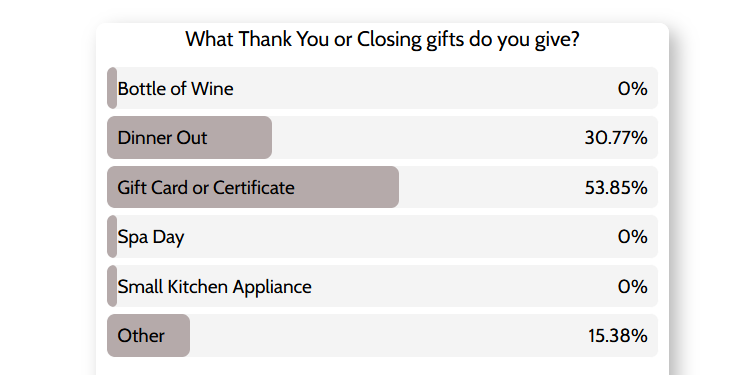When it comes to showing gratitude and appreciation through a thank-you gift, the choices are plentiful and diverse. Each situation, whether it's a closing gift for a client, an expression of gratitude for a referral, appreciation for a contractor’s dedication, or recognition of a colleague’s efforts, calls for a thoughtful selection that resonates personally and professionally with the recipient.
Choosing the right thank-you gift is not just a matter of custom or courtesy; it's an opportunity to strengthen relationships, conveys genuine appreciation, and create lasting impressions. For instance, a closing gift in the real estate sector isn't just a nice gesture—it's a pivotal part of the client experience that can enhance client satisfaction and foster future referrals. Similarly, acknowledging a contractor's hard work with a personalized gift can build a foundation of trust and respect, encouraging ongoing professional collaboration.
In corporate settings, recognizing an employee’s efforts with a well-considered gift can boost morale and motivate not only the recipient but also their colleagues, fostering a more positive and productive work environment. The impact of such gestures goes beyond the immediate joy of receiving; it often enhances loyalty and engagement within the organization.
Given the significance of choosing the right gift, we are eager to learn more about your preferences and experiences. What types of thank-you gifts have you found to be the most impactful? Have you received a particular thank-you gift that stood out to you in terms of thoughtfulness and relevance?
We would love to gather your insights on this topic to better understand trends and preferences in gift-giving. To this end, we invite you to participate in our quick poll. Your feedback will be invaluable in shaping our understanding of effective gratitude practices in professional settings. Please take a moment to share your thoughts and help us explore the nuances of expressing appreciation through gifts.
Participate in our poll here
Your input will not only inform our approach but also contribute to a broader dialogue on the art of saying thank you in meaningful ways.
%20(48).png?width=600&height=350&name=Blog%20Image%20(600%20x%20350%20px)%20(48).png)
Results

.png?width=500&height=200&name=BizGift%20Card%20Market%20FINAL%20COLOR%20(EC%20Approved).png)
%20(22).png?width=624&height=427&name=Blog%20Image%20(600%20x%20350%20px)%20(22).png)
%20(46).png?width=624&height=427&name=Blog%20Image%20(600%20x%20350%20px)%20(46).png)
-1.png?width=624&height=427&name=Blog%20Image%20(25)-1.png)